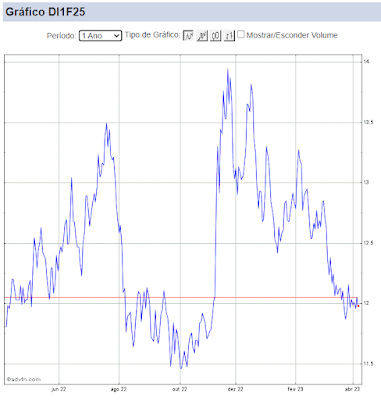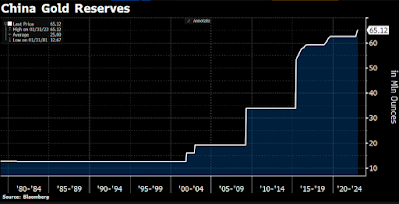Rússia
O mercado vem ignorando os últimos acontecimentos na Rússia, mas a ausência de uma solução concreta pode acabar trazendo ruídos de curto-prazo ao cenário. Segue artigo do WSJ sobre o tema:
Europe, U.S. Significantly Expand Sanctions Against Russian Economy
Many Western Officials Don't Expect Putin to Withdraw Support of Pro-Russia Rebels in Ukraine
The U.S. and the European Union adopted sweeping economic sanctions against Russia on Tuesday to punish Moscow's unbending stance in the Ukraine conflict.
The question for the West now is whether the move will make Russian PresidentVladimir Putin more cooperative or prompt him to dig in.
The trade and investment restrictions that EU governments, after much agonizing, agreed upon mark a major escalation of sanctions against Russia, which so far have been mostly token measures targeting individuals. New measures hitting Russia's banks, oil industry and military could increase financial strains in its already sluggish economy while withholding technology that the nation's modernization relies on.
The U.S. followed the EU's move by announcing similar sanctions against Russian banks as well as the energy, arms and shipping sectors. President Barack Obamahailed Europe's adoption of its most significant sanctions yet against Moscow, saying the U.S. and EU steps would have "bigger bite."
The rift with Russia is "not a new Cold War," Mr. Obama said Tuesday. "What it is is a very specific issue related to Russia's unwillingness to recognize that Ukraine can chart its own path," he said.
Some Western officials say they don't expect Mr. Putin to withdraw his support for pro-Russia rebels, who are widely suspected of having shot down a Malaysia Airlines jetliner over eastern Ukraine on July 17 and who are under growing military pressure from Ukrainian government forces. Russia and the rebels deny involvement in the downing of the plane.A number of Western companies are bracing for the sanctions' impact. BPBP.LN -0.58% PLC said ahead of the sanctions announcement that new measures could have an "adverse impact on…our business and strategic objectives in Russia and our financial position and results of operations." Bank of AmericaCorp. BAC -1.03% said it had cut its exposure to Russia by 40% to $3.94 billion since the end of December in anticipation of further geopolitical tension sparked by "Russian intervention in Ukraine."
EU governments are aiming to make clear to Mr. Putin's inner circle the costs of continuing to destabilize Ukraine. Though European officials say they don't expect the Kremlin to make a quick about-face, they hope a tightening economic squeeze will dissuade Mr. Putin from escalating the conflict, and will eventually push him and the rebels to the negotiating table.
A big concern is that Russia's leadership is too invested in the outcome in Ukraine, which it views as being within its rightful sphere of influence, to let the rebellion fail—even if the cost is recession in Russia.

Russian public support for Mr. Putin has surged since Moscow intervened in Ukraine, annexing Crimea and, Western governments say, arming the rebellion in Ukraine's east. The Kremlin denies giving the rebels more than moral support.
Opinion polls show Russians are less worried now about international economic sanctions than they were at the start of the Ukraine crisis. That suggests the expected economic fallout from Russia's growing isolation may not be an immediate political problem for the Kremlin.
The EU's monthslong effort to find a way to influence Russian policy in Ukraine has been hampered by the divergent economic interests of Western Europe's major nations, which stand to lose in differing ways from embargoes against Russia. The U.S. has tried to move in lock step with Europe, while encouraging EU governments to go beyond their limited previous measures.
The new package of measures reflects what governments in Berlin, Paris, London and elsewhere were able to agree on, rather than just a calculation of how to sway Mr. Putin. An EU compromise that targeted some business dealings with Russia while sparing others was designed to spread and limit the sacrifices among the bloc's 28 countries.
The U.K., although a strong supporter of sanctions, was worried that rich Russians and their companies could turn away from its financial center in London. France wanted to protect its contract to deliver two warships worth more than $1.5 billion to Russia. Germany sought to preserve its business selling advanced equipment to Russia's energy sector.
Tuesday's deal seeks to dampen the impact of sanctions in Europe's economy, much of which is still in a fragile recovery from the global financial crisis, by excluding existing contracts. That means France could still sell at least one ship to Russia, while German engineering firms could continue supplying Russian energy giants OAO RosneftROSN.MZ +2.13% and OAO Gazprom, OGZPY -2.14% at least in the short term.
Details of the EU sanctions are expected to be published Thursday and the measures are supposed to kick in on Friday.Russia's main economic role in Europe—as a supplier of natural gas—is so important to both sides that it is likely to continue, unless vital pipeline links fall victim to an escalation of the war in Ukraine.
With the steps announced Tuesday, the U.S. now has sanctioned five out of Russia's six largest state banks. But the penalties are nuanced, stopping short of total bans on doing business that Washington imposed on Iranian banks and instead blocking the ability of the institutions from obtaining medium and long-term debt.
Similarly, the U.S. took steps to penalize Russia's energy sector by restricting the export of technology that could be used to expand Russia's deep-water, Arctic offshore or shale oil production. But administration officials said the restrictions were designed to avoid affecting current energy production capabilities.
The sanctions may well hit hardest in the financial sector, meaning that the U.K. could pay for its hawkish line by absorbing more of the pain. "Given the bulk of the new measures focuses on finance, there is going to be a disproportionate impact this round on the British and the City of London," said Mujtaba Rahman, analyst at London-based political-risk consultancy Eurasia Group.
The financial sanctions would sharply restrict the ability of Russia's state-controlled banks, such as Sberbank SBER.MZ +2.54%
German Chancellor Angela Merkel said Tuesday's move was "unavoidable" given what she described as Russia's continued destabilization of eastern Ukraine. "It is now up to the Russian leadership to decide whether it wants to take the path of de-escalation and cooperation," Ms. Merkel said. "The EU's sanctions can be reviewed, but additional steps are also possible."The restrictions could push banks to seek funding from the Russian government or central bank, economists said. That could present Moscow with the unattractive options of drawing down its large foreign-currency reserves, worth about $500 billion, or letting the ruble fall sharply, which could add to inflation.
As Moscow returned to the forefront of concern in Washington, U.S. lawmakers moved toward approval of a new American ambassador to Russia. The Senate Foreign Relations Committee voted Tuesday to approve Mr. Obama's nomination of John Tefft, who was previously ambassador to Ukraine, Georgia and Lithuania. The full Senate is expected to act soon.
Mr. Obama accused Russia of transferring military equipment to the rebels, massing troops at the border with Ukraine and firing artillery into Ukraine. He said Russia would achieve more influence in Ukraine by being a "good neighbor."
Asked whether the U.S. is considering military assistance to Ukraine, Mr. Obama said Ukraine's forces are better armed than the separatists. "The issue is how do we prevent bloodshed in eastern Ukraine…and the main tool that we have to influence Russian behavior at this point is the impact it's having on its economy," he said.
Economic growth in Russia is already stalled, and Russian and foreign investors have been pulling money out of the country. If markets see the new round of sanctions as a signal that Russia's economy is increasingly off limits, and that further measures may follow, it could have a chilling effect on financial and other business dealings with the country, analysts said.
"Unless you've got a very high tolerance for risk, no one is going into Russia," said Neil Dooley, an attorney at Steptoe & Johnson in London who advises companies on Russian sanctions issues.
The International Monetary Fund last week cut its growth forecast for Russia's economy this year to 0.2%. A year ago, the IMF expected Russia to grow by 3.8% in 2014. The gathering chill in Russia's international ties means "Russia's already weak growth could become clearly negative," said Adam Slater, senior economist at U.K.-based consultancy Oxford Economics.
Despite the growing economic squeeze on Russia—with its unpredictable fallout for the EU's own markets, trade and growth—many EU officials believe they have only limited influence over the Kremlin.
Some EU officials voiced fears on Tuesday that Mr. Putin appears to be preparing Russians for international isolation. In Russia too, analysts said Mr. Putin was more likely to increase aid to the rebels in Ukraine in response to Kiev's military offensive than he was to back down.
"There are no signs that we will soon get another chance to find a political solution" to the Ukraine conflict, said Gernot Erler, the German government's coordinator for Eastern European issues. The governments in Moscow and Kiev are both "digging in," he said.
"We've no longer heard any reasonable signals from Moscow" since the downing of Malaysia Airlines Flight 17, Mr. Erler said.
—Gregory L. White, Laurence Norman and Anton Troianovski contributed to this article.
Write to Marcus Walker at marcus.walker@wsj.com, Matthew Dalton atMatthew.Dalton@wsj.com and Carol E. Lee at carol.lee@wsj.com


Comentários
Postar um comentário